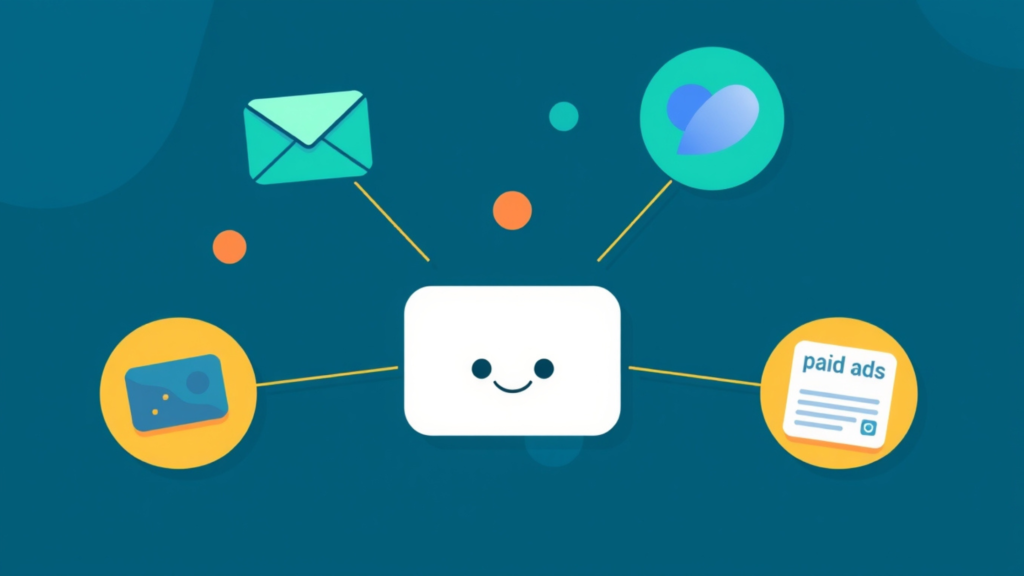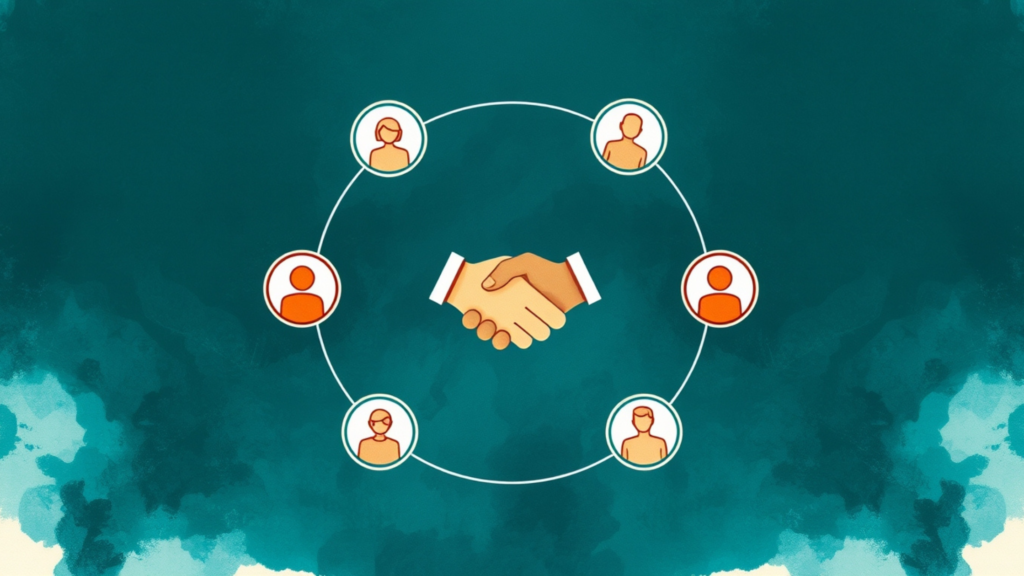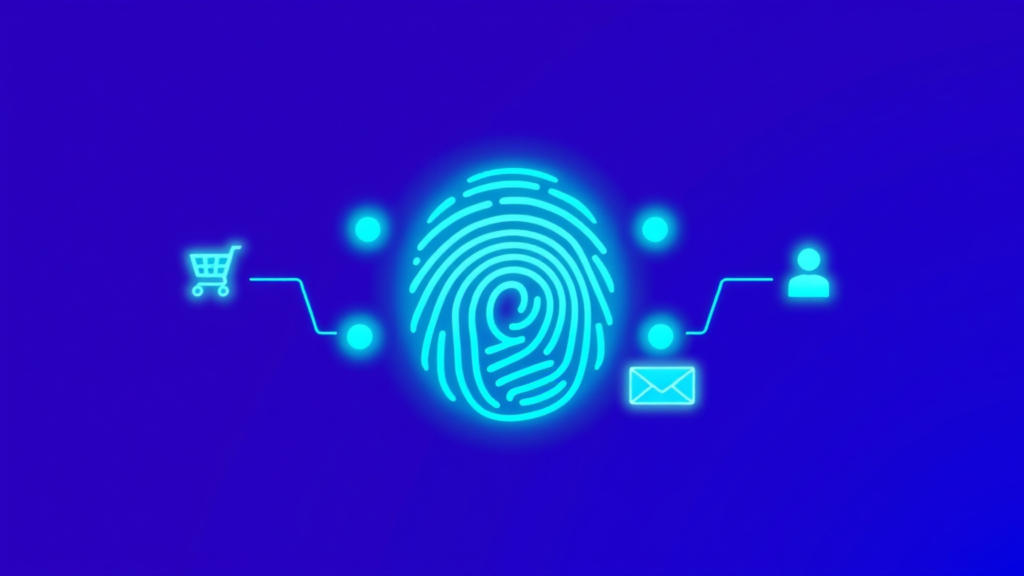11 Best Lead Generation Strategies for 2025

As we step into 2025, the landscape of lead generation is more dynamic and technologically driven than ever before. Businesses across the globe are on a constant quest to find innovative and effective ways to attract and convert potential customers.
In this comprehensive guide, we will explore 11 best lead generation Strategies that are setting the pace for future lead generation efforts. These strategies are not just trends; they are becoming essential tools for any business looking to thrive in a competitive market.
AI-Powered Lead Generation and Personalization

What is AI-Powered Lead Generation?
- Definition: Utilizing artificial intelligence to automate and enhance the process of identifying potential leads and customizing marketing efforts based on data-driven insights.
- Key Techniques: Machine learning algorithms, predictive analytics, and customer segmentation based on behavior and preferences.
Key Benefits and Industry Applications
- Improved Accuracy and Efficiency: AI algorithms analyze data and predict customer behavior with high accuracy, allowing businesses to target the right audience with the right message at the right time.
- Case Studies and Examples:
- Tech Company: A tech company implemented AI to analyze customer interactions and behavior. The result was a 50% increase in qualified leads due to targeted communications.
Industry adaptability: High across various sectors, particularly effective in B2B, e-commerce, financial services, and healthcare.
Content Marketing: Interactive and Video Content

Why Interactive Content Grabs More Attention
- Engagement: Interactive content such as quizzes, polls, and interactive videos require active participation, keeping users engaged longer than static content.
- Data Collection: These formats allow for the collection of valuable data about preferences and behaviors, which can be used to refine marketing strategies.
The Rise of Video in Lead Generation
- Consumer Preference: Videos can convey complex information in an easily digestible format, appealing to a broad audience.
- Effectiveness: Including video in campaigns can increase organic traffic from search results and improve conversion rates.
- Examples:
- Software Company: Leveraged video tutorials to explain product features, leading to a 40% increase in lead generation.
Industry adaptability: Extremely adaptable, beneficial across all industries including B2B services, e-commerce, real estate, and education.
Leveraging Intent Data and Predictive Analytics

Understanding Intent Data
- What is Intent Data?: Information that indicates a potential customer’s readiness to buy or interest in a product.
- Sources: Web browsing behaviors, engagement with marketing materials, and interactions on social media.
Benefits of Predictive Analytics in Lead Scoring
- Precision in Targeting: Allows businesses to prioritize leads based on the likelihood of conversion, ensuring that marketing efforts are not wasted on low-intent prospects.
- Implementation Steps:
- Data Collection: Gather behavioral data from various touchpoints.
- Model Development: Develop predictive models to analyze and score leads.
Industry adaptability: Particularly valuable in B2B, SaaS, and any industry with a digital footprint.
Multichannel Marketing and Cross-Platform Nurturing

Combining Channels for Maximum Reach
- Strategies: Use a mix of email, social media, SEO, and paid ads to cover various stages of the customer journey.
- Benefits: Ensures that potential customers receive consistent messaging through their preferred channels, improving brand recognition and trust.
Strategies for Effective Cross-Platform Nurturing
- Consistency is Key: Maintain a unified message across platforms while tailoring the approach to the strengths of each channel.
- Infographic: Best practices for integrating multi-channel strategies to provide a seamless customer experience.
Industry adaptability: Essential for all industries, particularly those with a broad target market such as retail and e-commerce.
Account-Based Marketing (ABM)

Personalizing at an Account Level
- Focused Strategy: Instead of broad campaigns, ABM targets specific high-value accounts with personalized messaging and offers.
- Implementation Guide: Steps to identify and target key accounts, develop personalized marketing strategies, and measure the impact.
ABM Success Stories
- Technology Firms: How ABM has transformed their marketing efforts, leading to higher engagement and conversion rates.
- ROI Analysis: Detailed analysis of the return on investment from ABM campaigns across various industries.
Industry adaptability: Highly effective in B2B environments, especially in sectors like technology, healthcare, and professional services.
Influencer Marketing and Partnerships

Finding the Right Influencers for Your Brand
- Selection Criteria: How to choose influencers that align with your brand’s values and have engaged audiences.
- Strategic Approach: Develop partnerships that are beneficial for both parties and provide value to the audience.
Crafting Successful Partnership Campaigns
- Collaboration Examples: Case studies of successful influencer collaborations that led to significant lead generation boosts.
- Tips for Success: How to negotiate partnerships, set clear expectations, and ensure campaign alignment with brand goals.
Industry adaptability: Particularly effective in B2C markets such as fashion, beauty, and lifestyle products, but also increasingly used in B2B through industry thought leaders.
SEO and Local SEO Optimization

Key SEO Tactics for Lead Generation
- Keyword Research: Identifying and targeting the right keywords to attract organic traffic.
- On-Page Optimization: Ensuring that all technical aspects of SEO, such as meta tags, headers, and images, are optimized to boost search engine rankings.
Importance of Local SEO for Small Businesses
- Local Listings: Maintaining accurate and optimized listings on Google My Business and other local directories is important.
- Community Engagement: Engaging with local communities through events and local SEO to increase visibility and attract local leads.
Industry adaptability: Universal applicability, with local SEO being crucial for businesses with physical locations such as retail stores, restaurants, and service providers.
Marketing Automation and Lead Nurturing

Tools for Automation in Lead Management
- Software Solutions: Overview of top automation tools that can streamline lead capture, segmentation, and nurturing processes.
- Benefits: Reducing manual tasks, improving lead response times, and personalizing customer interactions.
Benefits of Automated Lead Nurturing
- Consistency in Communication: Ensuring regular and relevant contact with leads to keep them engaged and move them through the sales funnel.
- Case Studies: Examples of businesses that have successfully implemented automation to improve their lead nurturing and seen a measurable increase in conversions.
Industry adaptability: Beneficial across all sectors, especially in industries with complex sales cycles such as B2B, real estate, and high-end retail.
Webinars and Virtual Events as Lead Magnets

Planning Engaging Virtual Events
- Event Types: Different formats of virtual events and webinars that can attract and engage audiences.
- Planning Guide: Key considerations for organizing successful events, from technology needs to content and speaker selection.
Using Webinars to Capture and Convert Leads
- Lead Capture Strategies: How to effectively use webinars to gather attendee information and follow up for conversions.
- Success Metrics: Key performance indicators to measure the success of virtual events in terms of lead generation and engagement.
Industry adaptability: Effective for knowledge-driven industries such as education, technology, and professional services.
Referral Programs and Word-of-Mouth Marketing

Setting Up Effective Referral Programs
- Program Structure: How to design a referral program that motivates participants and is easy to manage.
- Incentive Ideas: Effective rewards and incentives that encourage participation without diminishing the perceived value of your offerings.
The Power of Word-of-Mouth in Today’s Digital Age
- Impact on Leads: How positive customer experiences and reviews can significantly enhance lead generation efforts.
- Implementation Tips: Best practices for encouraging and managing word-of-mouth to maximize its impact.
Industry adaptability: Highly effective in all sectors, especially in service industries like hospitality, healthcare, and professional services.
Hyper-Personalization and First-Party Data Strategies

Utilizing First-Party Data for Personalization
- Data Collection: Best practices for gathering and utilizing first-party data responsibly and effectively.
- Personalization Techniques: How to use data to tailor marketing messages and offers to meet individual customer needs and preferences.
Complying with Data Protection Regulations
- Regulatory Compliance: Overview of key data protection regulations like GDPR and how to ensure your marketing practices comply.
- Checklist: Steps to secure customer data and use it ethically to build trust and enhance lead generation efforts.
Industry adaptability: Essential for all industries, especially those that handle sensitive information like finance, healthcare, and e-commerce.
Conclusion
The strategies outlined in this guide provide a robust framework for businesses aiming to enhance their lead generation efforts in 2025. By embracing these innovative approaches, companies can not only attract more qualified leads but also build lasting relationships with their customers. Start implementing these strategies today, and prepare your business for a successful future in the ever-evolving digital landscape.
Why Hire a B2B Lead Generation Company?
Deciding to partner with a B2B lead generation company can significantly enhance your business’s growth and efficiency. Companies like Saletancy specialize in this field and bring a wealth of experience and tools that most businesses simply don’t have in-house. Here are a few reasons why opting for professional lead generation services might be a smart choice for your business:

- Expertise and Focus: Lead generation companies are experts in their field. They spend all day, every day, figuring out the best ways to generate leads. This means they are up-to-date with the latest tools, trends, and strategies that get real results.
- Cost-Effective: Hiring a specialized company can save you money in the long run. They can achieve more with the same budget due to their efficiency and specialized tools, reducing the cost per lead and improving your overall ROI.
- Scalability: A lead generation company can adjust its services based on your needs. This flexibility allows you to scale your lead generation efforts up or down depending on your growth strategy and market conditions.
- Time-Saving: By outsourcing lead generation, your team is free to focus on converting leads into sales and on other core business activities. This can lead to better productivity and faster growth.
- Quality Leads: These companies specialize in not just generating any leads, but in generating quality leads that are more likely to convert into actual sales. They have the skills and tools to target the right people in the right way.
Hiring a B2B lead generation company can be a strategic move for businesses looking to grow efficiently and effectively. They bring expertise, tools, and strategies to the table that can significantly improve your lead generation efforts and help your business thrive in competitive markets.
1. What is the best strategy for lead generation?
The best strategy for lead generation is a multifaceted approach that combines various methods tailored to your specific audience and business goals. This typically includes content marketing, SEO, email marketing, and leveraging social media platforms. The key is to consistently provide value to your potential customers through high-quality content and engaging interactions.
2. What is the most effective way to generate leads?
The most effective way to generate leads depends on your target audience and industry. However, content marketing combined with strong SEO practices is universally recognized as highly effective because it attracts potential customers through organic search traffic, thereby increasing the likelihood of conversion.
3. What are the 4 L’s of a lead generation strategy?
The 4 L’s of a lead generation strategy are:
- Lead Capture: Ensuring you have mechanisms in place to collect information from potential leads.
- Lead Magnets: Offering something of value (like ebooks, whitepapers, or free trials) in exchange for contact details.
- Lead Qualification: Determining which leads are likely to become customers based on their actions and profile.
- Lead Nurturing: Engaging with leads over time to move them along the sales funnel until they are ready to make a purchase.
4. What is the best form of lead generation?
The best form of lead generation often involves digital content that educates, informs, or entertains, making it compelling enough for users to exchange their contact details for more. Webinars, ebooks, and interactive tools are particularly effective as lead magnets.
5. How to get B2C leads?
To get B2C leads, engage directly with consumers where they spend most of their time. This includes social media platforms, through targeted ads, and content marketing on your site. Offering promotions, discounts, or exclusive content can also be very effective in capturing consumer interest.
6. How to generate maximum leads?
To generate maximum leads, utilize a combination of online and offline strategies tailored to your target market. Online tactics might include SEO, PPC campaigns, and viral marketing, while offline tactics could involve networking events, seminars, or direct mail. Testing different approaches and analyzing data to see what works best is crucial.
7. What is B2B lead generation?
B2B lead generation involves identifying potential companies (or decision-makers within those companies) that could become customers of your business and collecting information to market to them directly. This process is often more complex and involves multiple touchpoints.
8. How can I get leads faster?
To get leads faster, optimize your lead generation campaigns for speed by using targeted ads on social media or search engines and by streamlining your website for quick conversions (e.g., through faster loading times and clearer call-to-actions).
9. What is the best source for leads?
The best source for leads will vary by business type and industry, but generally, a combination of organic search traffic (via SEO), referrals, and social media tends to provide high-quality leads. Additionally, leveraging professional networks like LinkedIn can be particularly effective for B2B lead generation.
10. What is the best example of lead generation?
A great example of lead generation is a company offering a free software trial or a free consultation service through their website, in exchange for contact details. This not only provides immediate value but also introduces potential customers to the product or service offerings.
11. What is the top priority of a lead generation strategy?
The top priority of a lead generation strategy is to effectively identify, attract, and engage potential customers in a manner that moves them down the sales funnel from awareness to a decision point. This involves not just capturing leads but nurturing them through personalized communication until they are ready to purchase.
12. What are the best lead generation strategies for maximizing conversions?
The best lead generation strategies for maximizing conversions combine several effective techniques tailored to your target audience and market. Here are some of the most effective strategies:
- Content Marketing: Creating and distributing valuable, relevant, and consistent content to attract and retain a clearly defined audience.
- SEO (Search Engine Optimization): Optimizing your website and content to rank higher in search engine results, making it easier for potential customers to find you.
- Email Marketing: Using targeted and personalized email campaigns to educate and nurture leads through the sales funnel.
- Social Media Marketing: Leveraging platforms like LinkedIn, Facebook, and Instagram to engage with potential customers and drive traffic to your website.
- Pay-Per-Click (PPC) Advertising: Investing in paid ads on search engines and social media to generate visibility and immediate leads.
- Lead Magnets: Offering valuable resources such as ebooks, whitepapers, or webinars in exchange for contact information.
- Remarketing: Targeting previous website visitors who did not make a purchase or inquiry with customized ads to bring them back to your site.
Implementing these strategies effectively will help you attract more qualified leads and significantly boost your conversion rates. Each strategy has its strengths, so combining several that align well with your business objectives and audience preferences will yield the best results.